What will pollution do to us?
- Published
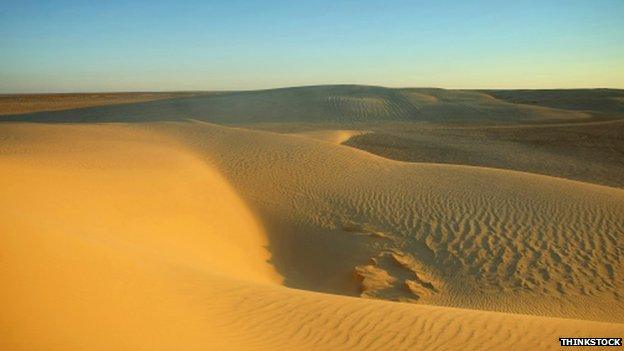
Dust from the Sahara is boosting UK pollution levels
Health warnings have been issued for parts of England as high air pollution levels are forecast.
But why does pollution cause problems, and what should people do?

Why are levels high now?
Winds have brought in pollutants from the Continent and dust from the Sahara, as well as "home-grown" pollution.
Levels hit the maximum of 10 on the Department for Environment, Food and Rural Affairs (Defra) air-pollution quality scale , externalin Norfolk on Tuesday - meaning a "very high" risk of air pollution - and are expected to be high in parts of England on Wednesday.

What is the advice?
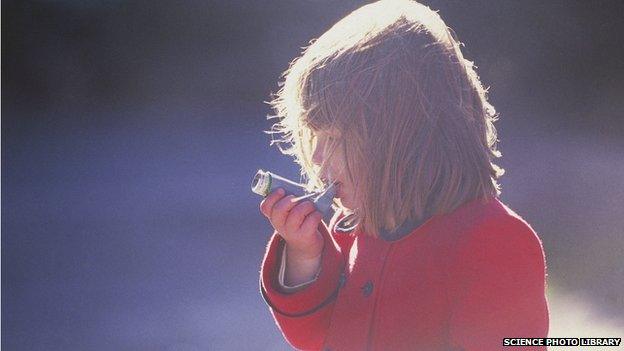
High pollution levels may mean people with asthma may need their inhalers more
At level 10, adults and children with lung or heart problems, and older people, should avoid "strenuous" physical activity altogether - such as exercising outside in the afternoon when levels are particularly high.
When the reading is between seven and nine, those with health and lung problems should reduce physical activity, and those with asthma may find they need to use their inhaler more frequently.

Should 'healthy' people change their behaviour too?
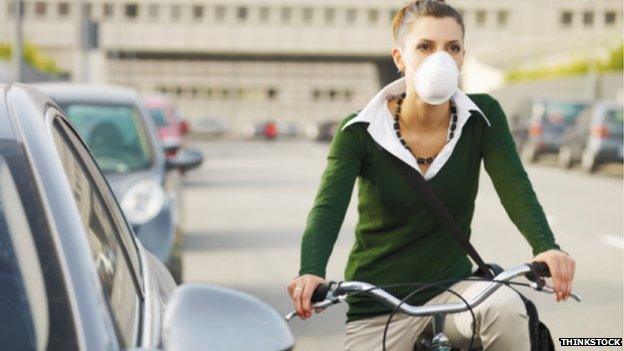
Yes, if they experience symptoms. These are likely to be minor :
sore eyes
tickly cough
dry throat
But the advice is that anyone experiencing them should consider reducing outdoor activity.

Why does pollution affect health?
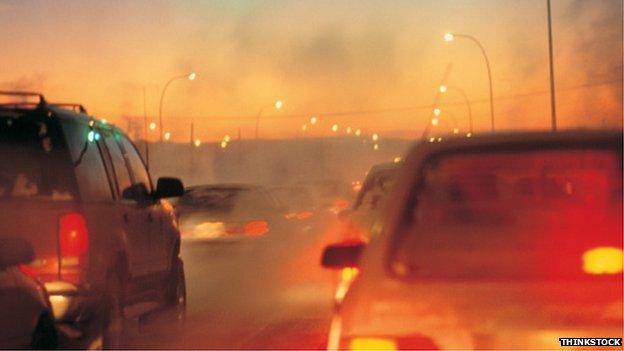
Quite simply because you are breathing in particles that are carried deep into the lungs which then irritate or inflame.
Those who are young and healthy are unlikely to suffer serious short-term effects. But long-term exposure can affect the respiratory system and contribute to heart disease, it is thought, by thickening the blood.
Last year the World Health Organization (WHO) said air pollution was a potential cause of lung cancer.

What's happening around the world?
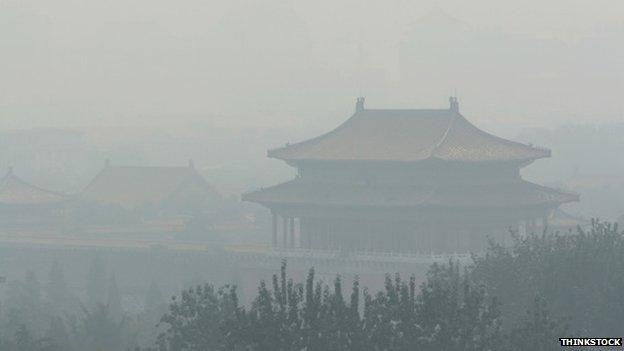
A recent WHO report calculated seven million people had died as a result of pollution - both indoor and outdoor - in 2012.
Outdoor pollution was linked to:
heart disease
stroke
lung cancer
the lung disease chronic obstructive pulmonary disease(COPD)
acute respiratory infections in children
Pollution is a major problem in cities such as Beijing and Mexico City.